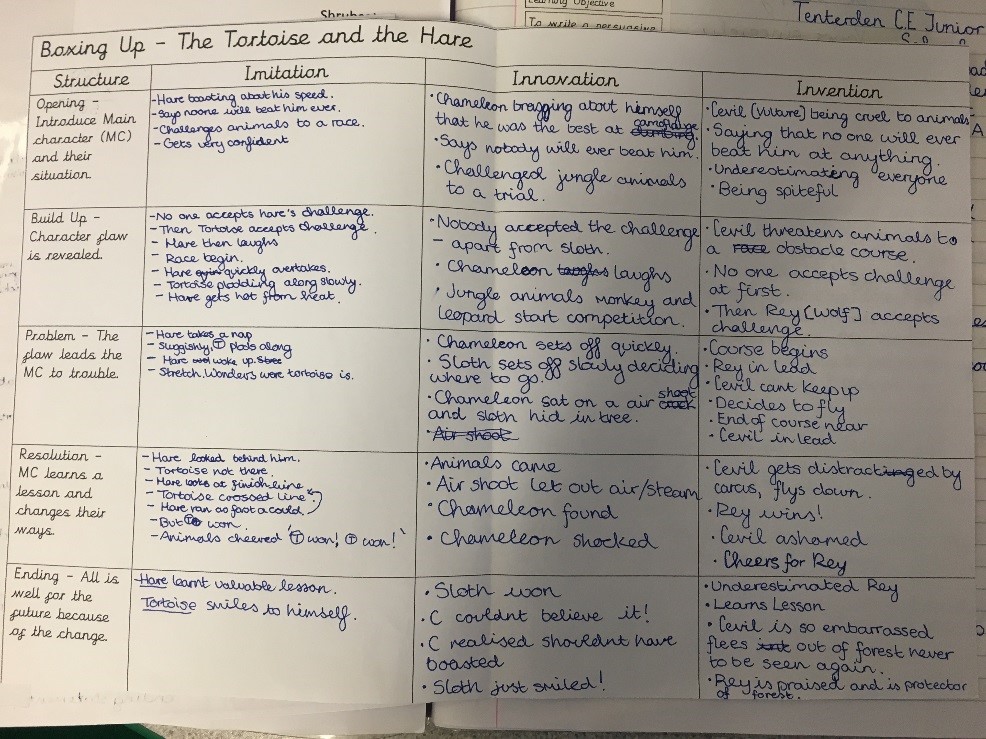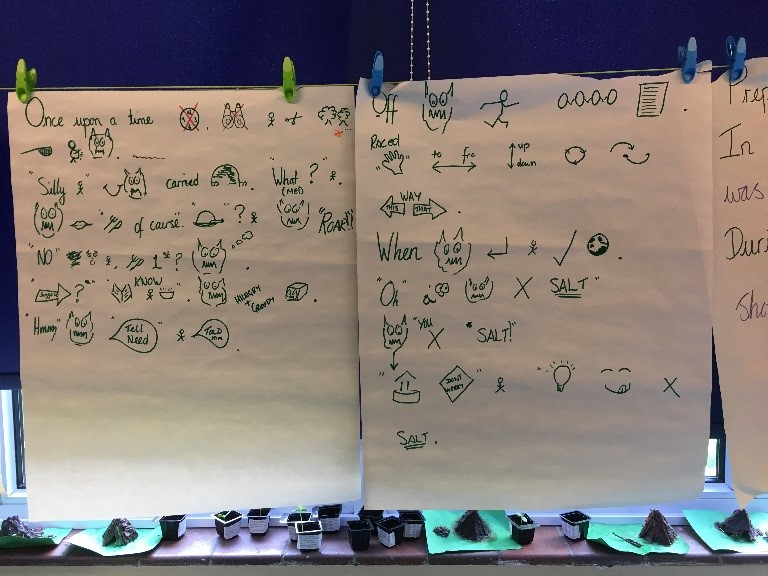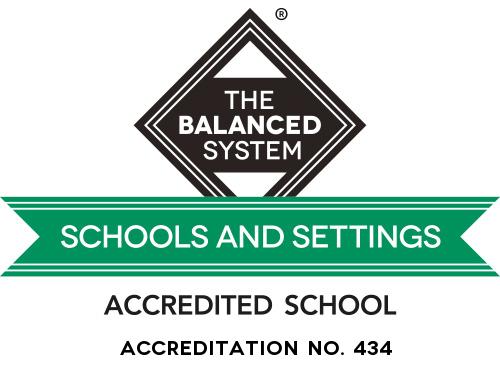Talk for Writing
Talk for Writing at Tenterden Primary Federation
Talk for Writing, developed by Pie Corbett, is the structure which is used as the basis for all English teaching across Tenterden Primary Federation. The underlying principle of this method of English teaching is that children are supported through an ‘imitation’ phase which enables the them to learn the language which they need for a particular topic orally in addition to reading and analysing texts in greater detail.
Our English curriculum is based on giving children access to high quality books, model texts and links to foundation subjects such as Science, Topic and RE. Our overview, including books, model texts and expected outcomes can be viewed by clicking here (Please note, this document is a work in progress).
Each three-week cycle of English teaching will consist of the following strands. The specific activities and balance between the three areas are decided by each year group. Prior to each unit, a ‘Cold Task’ is completed which enables teachers to assess accurately the teaching which needs to take place during a unit.
Imitation Week
Children are given the opportunity to learn, read and analyse a model text. They will learn sections and may be asked to perform it to their peers using actions or other resources. Following this, they will have opportunities to read as a reader in which vocabulary and comprehension will be explored before reading as a writer in which composition and effect will be analysed and toolkits generated.
Innovation Week
Using the language, structures and ideas generated during imitation week, the children will then start applying these through making increasingly complex changes to a model text. In Foundation Stage and KS1, children may be asked to change a character or setting, whilst in KS2, children will explore shifts in viewpoint, prequels/sequels and flashbacks. Boxing up is used to compare, contrast and structure extended pieces of writing.
Independent Application
During the final week of each cycle, children are given the opportunity to fully embed all that they have learned throughout the previous weeks by planning, writing and editing their own independent piece of writing based on the genre which has been taught. These are referred to as ‘Hot Tasks’ and are regularly published on Class Dojo for parents to share with their children.
Poetry
Poetry is used as a recurring theme throughout all fiction and non-fiction writing. Children explore key language through thematic poetry which is regularly performed in class.
Glossary of Terms
|
Cold Task |
An independent task completed by the children before teaching commences. Used to set targets and identify gaps in learning. |
|---|---|
|
Hot Task |
An independent task completed by the children once teaching is complete – used to assess understanding and progress. |
|
Reading as a Reader |
Looking at a text from the perspective of a reader – generating an understanding of the vocabulary and meaning. |
|
Reading as a Writer |
Looking at a text from the perspective of a writer – identifying structural and language features. |
|
Boxing Up |
A planning method in which the children plot out a narrative/non-narrative text by ordering ideas, events and language in vertically arranged boxes. |
|
Magpie Books |
Each child has their own ‘Magpie Book’ in which they collect words, sentences or ideas which they may have heard or read. |

Example of a Boxing Up Grid
Example of a Four Quadrant Grid

Story Mapping in Class







